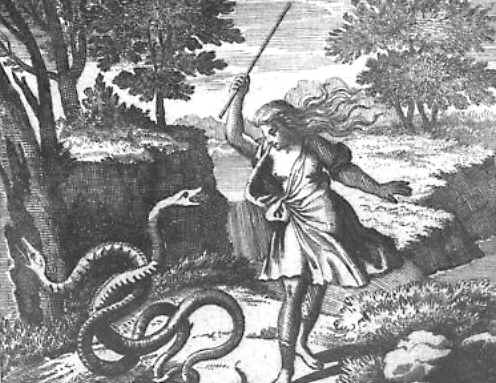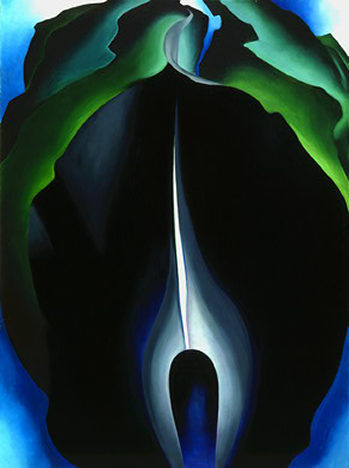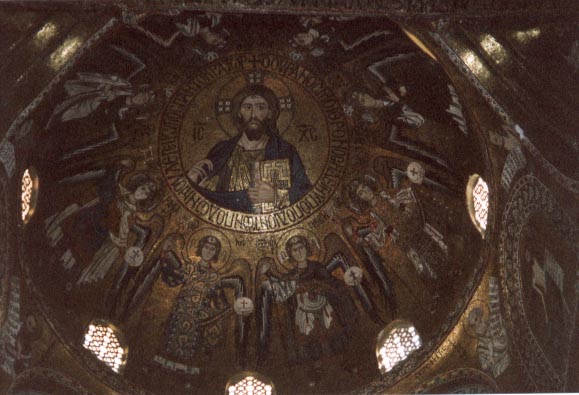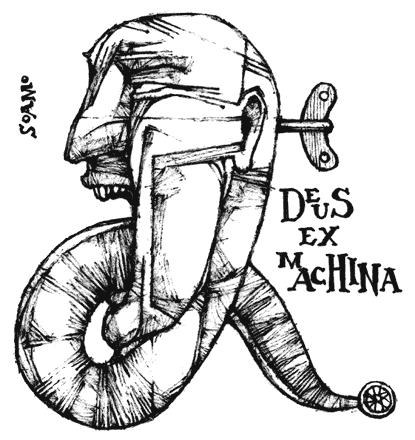 From Fark.com |
 |
...under the microscope, sperm carrying male chromosomes had been observed to swim faster than those carrying female chromosomes...to have a girl baby, a couple should have "have sexual congress twenty-four hours prior to ovulation." That way, the swift male sperm would rush in and die off. The female sperm, sluggish but more reliable, would arrive just as the egg dropped....
Meanwhile, in the greenroom to the world, I waited...The timing of the thing had to be just so in order for me to become the person I am. Delay the act by an hour and you change the gene selection....An infinite number of possible selves crowded the threshold, me among them but with no guaranteed ticket....
 From Fark.com |
 |
Some announcements:
7:30 p.m. Th, 9/29, a reading by novelist Jane Alison ( The Love Artist, The Marriage of the Sea, Natives and Exotics) Ely Room, Wyndham Alumnae House, BMC.
7:30 p.m. Th, 10/6, a reading by novelist and essayist Ana Castillo (author of 17 books; an American Book Award recipient for her first novel, The Mixquiahuala Letters), Thomas Great Hall, BMC.
5 p.m. F, 10/7: 5-pp. papers due
What have you learned so far about the making and un-making of the categories of sex and gender? What are your questions? How can you begin finding answers to them?
Post a one-paragraph description of your topic on-line by 5 p.m. on Sunday, 10/2;
read them all before class on Monday, when we will work and play with your topics....
W, 10/5
Biological work and play, with Paul Grobstein
Read Diversity and Deviance: A Biological Perspective. Bryn Mawr Alumnae Bulletin (Spring 1989).
(Note scheduling switch...)
Sarah: ... I thought Orah made a really neat point when she said that the first part of the book was the "archeology" of Cal. Eugenides made a good choice when he decided to start the story at the very beginning (with Desdemona and Lefty); Cal's story depends on all the events that lead up to her birth, even events that occur almost forty years before conception. (I suppose that puts a point on the biology side for the biology/environment argument). Without this explanation, Cal and Calliope come out of nowhere with no explanation. Yet, at the same time, maybe we're not really getting the full story - we aren't told about the time that the mutated chromosome came into existence. But how could Eugenides tell the full story - is there a such thing as the full story?
Orah: I'll cut to the chase: i think the binary of brother and sister is one that need not be deconstructed. i think that the sexual relationship between siblings is unfastening from the code of who we are as human beings. everyone in the class (except em) seemed fine with it: would you be fine if it was a relation between a father and a daughter? a mother and a son?
Samantha: I think there is something further to your question, that is, what about desire? Should we then talk about where the root of desire comes from? I don't think we were all fine with the relationship between Lefty and Desdemona, but in relation to the story Eugenides wants to write, it was an explanation for Cal's being; it was a way to draw us in to the secret, the secret of our selves as we become unravelled by the truth of our genes.
Amy Ph: I thought that the incest between Lefty and Desdemona was hot. I think this is important to share because it's the opposite end of the reaction of disgust (which maybe some of us had, but didn't share). Or is it? Perhaps disgust and desire are linked. Which came first, the desire for incest or the disgust/taboo? Do we desire it because it is forbidden, or is it forbidden because we desire it?
Talya: However much we battle incest we all admit and encourage love to develop in the heart, not the brain....falling in love is often simply desire translated into emotions stronger than oneีs brain can truly contemplate, it is not something that can be understood or qualified....in my mind, there is still minimal choice in desire.
Orah: yeh, i'm bothered by what i wrote yesterday: allow me to revise? ... i don't care what siblings decide to do....when say that sex between siblings is unnatural to our code as human beings i am not saying that desire between siblings is unnatural. the tautness of the space between binaries can vary. never will i suggest that sexual tension between siblings is "bad." tension is a part of existence. maybe even what it means to live: stretched between life and death....okay. DRAG! there is a TENSION that need not be overcome when one does not feel at home in one's own skin: when one makes it a constant occupation to dress and redress and arrange and disarrange and oraganize and disorganize one's own self: there is a sense of being able to create one's own self: a sense of power over nature.
Jonathan Haidt, The Emotional Dog and its Rational Tail (Psychological Review, 2001)
Who are her literary ancestors?
Besides scientific studies--
Specialized readers many have come across me in Dr. Peter Luce's study, "Gender Identity in 5-Alpha-Reductase Pseudohermaphrodites" ....
there are Greek myths--
Like Tiresias, I was first one thing and then another....
(Who was Tiresias?)

From OVID: METAMORPHOSES, BOOK III, richly illustrated by famous artists in European history
...the play...was Antigone....I was a shoo-in to play the old, blind prophet. My wild hair suggested clairoyance. My stop made me appear brittle with age. My half-changed voice had a disembodied, inspired quality (331).
As I Iooked, I didn't take sides. I understood both the urgency of the man and the pleasure of the woman. My mind was no longer blank. It was filling with a dark knowledge (435).
Many cultures on earth operated not with two genders but with three. And the third was always special, exalted, endowed with mystical gift. One cold drizzly night i gave it a try...I tried to fall into a trance state...but nothing happened. As far as special powers went, I didn't seem to have any. A Tiresias I wasn't (495).

(Eugenides again:) I want to get it down for good: this roller-coaster ride of a single gene through time. Sing now, O muse, of the recessive mutation on my fifth chromosome!...Sing how it passed down through nine generations....Sorry if I get a little Homeric at times. That's genetic, too.
In his 3 a.m. interview about the novel, Eugenides observes that the book
in contrast to the way hermaphrodites have appeared in literature -- miserable creatures like Tiresias for instance -- I wanted to write about a real person with a real condition....Originally, I worked from

the Memoirs of Herculine Barbin, published by Michel Foucault in the late seventies....But as an expression of what it is like to be a hermaphrodite, from the inside, Herculine Barbin's memoir is quite disappointing. She just tends to go into this moaning, talking about how misfortunate she is and ... it's sad. You can go and read it, but she didn't have enough self-awareness to be able to understand what was going on. In a way she was pre-psychological in her knowledge of her self. And when I read that book I didn't get any information about someone with such a condition....
In a way, some people say, the book is not about a hermaphrodite at all. And I understand that, it's about reinventing your identity on different levels, be that Greek to American, female to male....Reinvention of self is an enduring theme in American literature in general...this...has obviously Classical antecedents...and those are the things that inspired me: metamorphosis and changing....

Escher's "Metamorphosis" @ InSite
...my narrator is determined by her genes, she has this genetic mutation there's no escaping of. But the mutation does not make her who she is, does not determine everything about her life. There is still a great amount of free will and possibility in her life, and that's one of the things the book is strongly determined in.
At least one (local) critic took issue with this free range of identity.
From Bethany Schneider's 9/02 Newsday review of Middlesex:
Race, sex, nationality - all are rewriteable, reinventable..... But unfortunately the book is uncoordinated - it feels like a teenager, like it needed to grow up a bit before it was allowed to live in the world on its own. The breadth of plot and time and characters is only awkwardly handled by the first person narration of Cal....In addition to the problem of historical knowledge, Eugenides' denies his main character any interiority regarding the problem of gender identification. Cal insists that s/he has no deep psychological sense of her complex gender identity.
Cal lacks, in other words, the "persistent self" figured in

(What sort of tale does each of these covers "tell"?
What do you expect to find under each one?)
 |
 |

|
 |
 |
 |
I first noticed an "Easter theme" in the novel when
Milt interrupts his Easter egg-cracking ritual
("Time out. That's my egg. Nobody touch it until I come back" --p. 16)
to inseminate Tessie.

I want to suggest that this story, of continuous re-birth, is Cal's story:
For that spring, while the crocuses bloomed, while the headmistress checked on the daffodil bulbs in the flower beds, Calliope, too, felt something budding....A kind of crocus itself, just before flowering. A pink stem pushing up through dark new moss....I'd feel a thaw between my legs, the soil growing moist, a rich, peaty aroma rising, and then...the sudden, squirming life in the warm earth beneath my skirt. To the touch, the crocus sometimes felt soft and slippery, like the flesh of a worm. At other times it was as hard as a root (330).

Georgia O'Keefe, Abstraction Blue, from Kara Meister's Website
...in locker rooms....The swampiness, the nudity bring back original conditions....On I came...gaping...at the fantastic underwater life all around me. Sea anemonies sprouted from between my classmates' legs....Higher up, their breasts bobed like jellyfish, softly pulsing, tipped with stinging pink. Everything was waving in the current, feeding on microscopic plankton, growing bigger by the minute (295-297).
In the basement bathroom was a time frame I felt much more comfortable with...the slow, evolutionary progress of the earth, of its plant and animal life forming out of the generative, primeval mud. The faucets dripped with the slow, inexorable movement of time (328).
I lifted my face up out of the water and so was unaware of the eyes studying my mollusk....The surface of the sea is a mirror, reflecting divergent evoltuionary paths. Up above, the creatures of air; down below, those of water. One planet, containing two worlds (484).

| The mind self-edits. The mind airbrushes. It's a different thing to be inside a body than outside. From outside, you can look, inspect, compare. From inside there is no comparison....Outside had ended. There was nowhere to go that wouldn't be me (387, 473). | Under...sedation Tessie withdrew into an inner core of herself, a kind of viewing platform from which she could observe her anxiety....There was a place halfway between consciousness and unconsciousness where Tessie did her best thinking (465). |
Living unconsciously can be sad.
It may also open us to new possibilities:
| Lefty was confronting the possibility that consciousness was a biological accident...he'd always believed in the soul, in a force of personality that survived death. But as his mind continued to waver, to short-circuit, he finally arrived at the cold-eyed conclusion, so at odds with his youthful cheerfulness, that the brain was just an organ like any other and that when it failed he would be no more....the hard disk of his memory slowly began to be erased, beginning with the most recent information and proceeding backward.... (263). | Had she had all her wits, Desdemona could not possibly have fathomed what I was saying, but in her senility she somehow accommodated the information. She lived now amid memories and dreams, and in this state the old village stories grew near again....he eyes had gone dreamy. She was smiling. And then she said, "My spoon was right" (526). |
(Cf. The World, the Text and the Critic, 1983, in which Edward Said makes exile the image of the intellectual: the "ascetic code of willed homelessness . . . a good way for one who wishes to earn a proper love for the world.")

From Travel in Sicily
 |
 |

Consider, for instance, the moment when Milt receives his reprieve as a signalman:
He was to report to the Naval Academy at Annapolis.
On the admissions test, Milton had scored a ninety-eight.
Every Greek drama needs a deus ex machina (196).
Is this a deus ex machina, or did he engineer it himself?
Maybe the two differ only in the distance from which we view them?
 From The Atlantic Online |  |

From Soamo Gallery
Maybe each of us is our own "deus ex machina"?